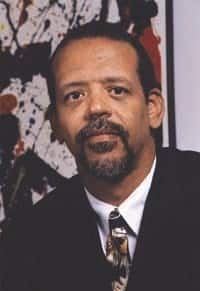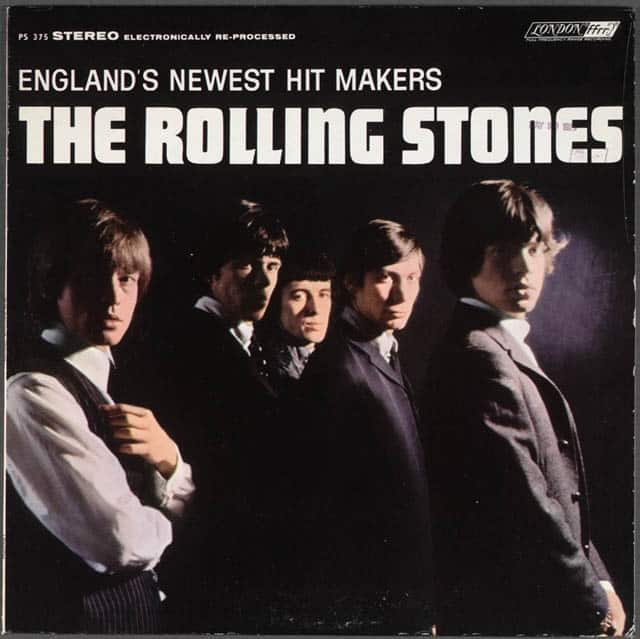![]() “For the first time in history, we are witnessing the mainstreaming of Jewish ideas, Jewish values, Jewish personalities, and Jewish culture in the American media. Slowly but surely, Jewish values are sculpting and molding the mainstream culture.” Rabbi Schmuley Boteach[1]
“For the first time in history, we are witnessing the mainstreaming of Jewish ideas, Jewish values, Jewish personalities, and Jewish culture in the American media. Slowly but surely, Jewish values are sculpting and molding the mainstream culture.” Rabbi Schmuley Boteach[1]
by Jonas E. Alexis

We have said in the past that David Duke has some sensible things to say. In fact, he seems to be more gracious than most critics when it comes to examining the music industry, particularly when it comes to discussing the music of people like Nikki Minaj.
The media lambasted Duke because he said some sensible things about Minaj’s music. He makes the point that her music celebrates “black criminality [and] thuggery” and promotes drugs and “all sorts of sexual abuse” and “abuse of women.”
Duke continues,
“Just look at Nicki Minaj. I don’t even want you to look at it, it’s so horrible. You will never hear more of the ‘n-word,’ more words about ass…God knows I’m not going to say all the things they say. Every kind of filthy word. Every kind of filthy, violent drug-promoting material. It’s just absolutely sickening.”
“…And the guy that produces all that, one of the Jewish producers, in fact, the entire music industry is absolutely controlled by the Zionists, the Jewish extremists, the same ones in the media that support Israel and basically pervert our country and the interest of America for that of Israel…
“One of the Jewish producers was boasting about the fact that every one of the Top 10 Billboard songs were those he (Zionist music mogul Lucian Grainge) controlled.
“So, I tell ya, even Rap music (its popularity) is not something that Blacks really were responsible for. It was the Jewish record producers who promoted this degenerate and sick music.”
This is absolutely true. So far, Duke hasn’t even used the word “whore” to describe people like Minaj, but the description fits perfectly well here.
A whore can be “a person considered sexually promiscuous” or “a person considered as having compromised principles for personal gain.” Is this an apt description of Minaj and others?[2]
Well, the best way to find out is to look at the fruit of their labor:
If music has the potential to “trigger physiological changes that modulate blood pressure, heart rate and respiration,”[3] if it can affect even plants and animals,[4] what kind of effect does it have on its young listeners, who sometimes cannot even tie their own shoes properly?
Does the music industry mean to tell us that placing sexual imagery in front of young and impressionable youth for decades does not affect their minds and hearts about sex and other issues? Who are they really kidding?
Duke continues to express his idea in a sensible manner:
“I have said repeatedly that the problem with gangsta rap is not primarily its musical style, but its toxic promotion to young blacks and whites of violence, drugs, thuggery, criminality, and sexual degeneracy as well as disrespect and abuse of women, and racist hatred against white people.
“By presenting this sick, degenerate lifestyle as the essence of blackness, the Zio-record industry has devastated the black community and the black family. This is the kind of culture is promoted not only by the Jewish music bosses but the rest of the Zio media.
“In effect, the Jewish promotion of pornographic, violent, drug glorifying gangster rap destroys more black young people than the few shot by white police.”

If you are still not convinced, let us listen to John McWhorter, a black scholar at Columbia University:
“Many writers and thinkers see a kind of informed political engagement, even a revolutionary potential, in rap and hip-hop. They couldn’t be more wrong.
“By reinforcing the stereotypes that long hindered blacks, and by teaching young blacks that a thuggish adversarial stance is a properly ‘authentic’ response to a presumptively racist society, rap retards black success.
“The venom that suffuses rap had little place in black popular culture—indeed, in black attitudes—before the 1960s. The hip-hop ethos can trace its genealogy to the emergence in that decade of a black ideology that equated black strength and authentic black identity with a militantly adversarial stance toward American society.
“In the angry new mood, captured by Malcolm X’s upraised fist, many blacks (and many more white liberals) began to view black crime and violence as perfectly natural, even appropriate, responses to the supposed dehumanization and poverty inflicted by a racist society.
“Briefly, this militant spirit embodied above all in the Black Panthers, infused black popular culture, from the plays of LeRoi Jones to “blaxploitation” movies, like Melvin Van Peebles’s Sweet Sweetback’s Baadasssss Song, which celebrated the black criminal rebel as a hero….
“But rap took a dark turn in the early 1980s, as this “bubble gum” music gave way to a “gangsta” style that picked up where blaxploitation left off. Now top rappers began to write edgy lyrics celebrating street warfare or drugs and promiscuity.
“Grandmaster Flash’s ominous 1982 hit, ‘The Message,’ with its chorus, ‘It’s like a jungle sometimes, it makes me wonder how I keep from going under,’ marked the change in sensibility…
“Rap also began to offer some of the most icily misogynistic music human history has ever known… [A]s N.W.A. (an abbreviation of ‘Niggers with Attitude’) tersely sums up the hip-hop worldview: ‘Life ain’t nothin’ but bitches and money…’
“In the seventies, screaming hard rock was in fashion among young whites, while sweet, sinuous funk and soul ruled the black airwaves—a difference I was proud of. But in the eighties, rock quieted down, and black music became the assault on the ears and soul.
“Anyone who grew up in urban America during the eighties won’t soon forget the young men strolling down streets, blaring this sonic weapon from their boom boxes, with defiant glares daring anyone to ask them to turn it down.
“Hip-hop exploded into popular consciousness at the same time as the music video, and rappers were soon all over MTV, reinforcing in images the ugly world portrayed in rap lyrics.
“Video after video features rap stars flashing jewelry, driving souped-up cars, sporting weapons, angrily gesticulating at the camera, and cavorting with interchangeable, mindlessly gyrating, scantily clad women.
“Of course, not all hip-hop is belligerent or profane—entire CDs of gang-bangin’, police-baiting, woman-bashing invective would get old fast to most listeners. But it’s the nastiest rap that sells best, and the nastiest cuts that make a career.”[5]
McWhorter even chastised people like Michael Eric Dyson, who praised black thugs like Tupac Shakur for “challenging narrow artistic visions of black identity and for “artistically exploring the attractions and limits of black moral and social subcultures…
“By the eighties, the ghetto had become a ruthless war zone, where black people were their own worst enemies. It would be silly, of course, to blame hip-hop for this sad downward spiral, but by glamorizing life in the ‘war zone,’ has made it harder for many of the kids stuck there to extricate themselves.
“Seeing a privileged star like Sean Combs behave like a street thug tells those kids that there’s nothing more authentic than ghetto pathology, even when you’ve got wealth beyond imagining. The attitude and style expressed in the hip-hop ‘identity’ keep blacks down.
“Similarly, the arm-slinging, hand-hurling gestures of rap performers have made their way into many young blacks’ casual gesticulations, becoming integral to their self-expression.
“The problem with such speech and mannerisms is that they make potential employers wary of young black men and can impede a young black’s ability to interact comfortably with co-workers and customers. The black community has gone through too much to sacrifice upward mobility to the passing kick of an adversarial hip-hop ‘identity.’”[6]

McWhorter seemed to have dropped the atomic bomb when he said,
“For those who insist that even the invisible structures of society reinforce racism, the burden of proof should rest with them to explain just why hip-hop’s bloody and sexist lyrics and videos and the criminal behavior of many rappers wouldn’t have a powerfully negative effect upon whites’ conception of black people.”[7]
Thomas Sowell himself condemns the “thuggish gutter words and brutal hoodlum lifestyle of ‘gangsta rap’ musicians…”[8] In another book, he continues to say,
“The ugly, ignorant and barbaric lyrics of ‘rap’ music have been sanctified by benedictions in the columns of the New York Times and by Ph.D.’s teaching at Ivy League universities.”[9]
Walter E. Williams, a black economist at George Mason University, talked about “Other forms of cultural deviancy [that] are found in the kind of music accepted today that advocates killing and rape and other vile acts.”
Ronald F. Ferguson, another black economist and scholar at Harvard, declared that children who became obsessed with rap “may unconsciously adopt the themes in this music as their lens for viewing the world.”[10]
Numerous studies support Ferguson’s judgment. In 2006, the Prevention Research Center of the Pacific Institute for Research and Evaluation in Berkeley, Calif., concluded a long study saying that “young people who listen to rap and hip-hop are more likely to abuse alcohol and commit violent acts.”[11]
It must be noted in passing that back in 2007, a study found that the overwhelming majority of Black and Hispanic youth (72%) agreed that
“Rap music videos contain too many references to sex. 70% of young women and 59% of young men agree that rap music videos have too many references to violence. About 60% of youth agree that ‘Rap music videos portray Black women in bad and offensive ways.’ Over 50% of youth agree that ‘Rap music videos portray Black men in bad and offensive ways.’
Here is the question: what if you didn’t know that McWhorter, Sowell, and Ferguson were all black? Would you quickly say that they were “racists”?
If not, then by what logical inference allows the media to quickly say that Duke is a “racist” for saying the same thing that others have said in print?
So, David Duke is right when he criticizes pop culture (most specifically Hollywood) as a largely Jewish town. We should never forget what Jewish scholar Nathan Abram has articulated in his recent book The New Jew in Film:
“[O]lder generation of Jewish filmmakers and actors, here [Woody] Allen, [Stanley] Kubrick and [Ron] Jeremy, arguably not only increased the Jewishness of their work but updated it to match the new post-1990 sensibility by defining it in increasingly sexualized (and pornographic) terms.”[12]
This is also congruent with Yuri Slezkine’s thesis that “The modern age is the Jewish Century, and the twentieth century, in particular, is the Jewish Century….Modernization is about everyone becoming Jewish.”[13]

The music industry, Duke believes, has been hijacked by “Jewish Supremacism” and has had an enormously negative influence on young people. Again, this is historically true. The Dreadful Few began to take over the music industry around 1910. As Rabbi Kenneth Aaron Kanter wrote in 1982:
“In the history of American popular music, each period of development has been dominated by a single group. For the years 1910 through 1940, that group was the Jews…
“Popular songs were soaked in the wailing of the synagogue cantorial. The Yiddish singing style, with the cry in the voice and the heart on the sleeve, was typified by A1 Jolson, Norah Bayes, and Sophie Tucker, the vaudeville stars who made the Tin Pan Alley songs into hits. They fused Yiddishisms into all-Americanisms…
“The vaudeville circuit-by 1910 already 2,000 theatres strong-was largely dominated by Jews. The Shubert brothers-Sam, Lee, and Jake were the sons of a Lithuanian peddler named David Szemanski who came to America in the late 1880s.
“The nightclub business was invented by a Jew, Jack Levy, who in 1907 induced several restaurants at which he was a patron to accept singers as entertainers during eating hours.
“The nightclub became a new place for songs to be heard and another place where Jews played important roles.
“Marcus Loewe, Adolph Zukor, and Martin Beck (Morris Meyerfeld), who founded the Orpheum circuit, all were founders of the Hollywood movie industry as well. They were joined by Louis B. Mayer, Samuel Goldwyn, the Selznick’s, William Fox, and the Warner brothers.”[14]
 Jewish scholar Ted Merwin adds,
Jewish scholar Ted Merwin adds,
“The fact is Jewish characters were extremely common and extremely visible in the 1920s popular culture, in hundreds of vaudeville routines, Broadway shows, and films…
“The Jazz Age… brought to New York a dizzying set of cultural shifts, and Jews were at the center of many of these transformations as builders, brokers, and Broadway producers.”[15]
Later Merwin continues, “Jewish-themed entertainment remained extraordinarily popular with non-Jews as well as with Jews. In fact, as Michael G. Corenthal has noted… through the use of Victrola, ‘a Jewish personage became a permanent fixture in a majority of non-Jewish homes.”[16]
Moving on to the late 70s, 80s, and 90s, bands, groups, and artists like the Beatles, Rolling Stone, and Michael Jackson, fell into the hands of the Dreadful Few.[17] This has been pointed out by the Jewish Daily Forward itself. First, it said that
“Given the 71-year-old McCartney’s love affair with all things Jewish for the past half-century — including collaborators, business associates, girlfriends, and wives — the title [of his album ‘New’] could well be meant as a transliteration of the all-purpose Jewish word nu.
“Over the holiday, the bride and groom attended services at the Liberal Jewish Synagogue in St. John’s Wood, near McCartney’s home and close to Abbey Road Studios, where the Beatles recorded most of their songs.”[18]
Brian Epstein, “the Jewish owner of a record store in Liverpool,” turned the Beatles “into an international sensation…Andrew Loog Oldham, also Jewish, soon took over management of The Rolling Stones, reshaped their image, and steered them toward a broader musical palette.”[19]
And then this:
“For one, he [Epstein] turned them into the anti-Beatles, giving them a more ‘dangerous’ and rebellious image — longer and unkempt hair, and an overt sense of sexuality and violence.
“Oldham enlisted the services of photographer Gered Mankowitz — the son of English Jewish screenwriter Wolf Mankowitz — who was responsible for the band’s early album covers and publicity shots.
“Mankowitz was as responsible as Oldham was for creating the Stones’ bad-boy image, and he was the official tour photographer on the band’s first United States tour in 1965.
“In 1966, Oldham turned over management of the Rolling Stones to a Jewish accountant from New York named Allen Klein. Klein scored the group a monumentally profitable record deal when their contract with Decca Records came due for renegotiation.
“The deal was much more lucrative than the one Brian Epstein had negotiated for the Beatles, and after Epstein died in 1967, the Beatles turned to Klein in the hopes that he could do for them what he had done for the Stones. Eventually, however, infighting among the Fab Four over Klein’s role was a contributing factor to their dissolution.
 “More than one modern-day klezmer band has covered the song, whose minor-key scale is remarkably similar to some of the Yiddish modes.
“More than one modern-day klezmer band has covered the song, whose minor-key scale is remarkably similar to some of the Yiddish modes.
“While more than one wag has commented that lyrically the song’s narrator could be a Hasidic Jew favoring the color black, Richards himself acknowledged the song’s debt to Jewish music, telling Rolling Stone magazine, ‘It was a different style to everything I’d done before… Maybe it was the Jew in me. It’s more to me like ‘Hava Nagila’ or some Gypsy lick. Maybe I picked it up from my granddad.’
“That last comment is the only hint that any of the members of the Rolling Stones may have Jewish ancestry, but has mostly been dismissed as Richards just taking the piss, as an Englishman is wont to do.
“‘Paint It, Black,’ however, isn’t the only Stones song that contains Jewish references. The concert staple ‘Sympathy for the Devil,’ ostensibly narrated by Lucifer himself, contains the lines, ‘I rode a tank/ Held a general’s rank/ When the blitzkrieg raged/ And the bodies stank,’ which presumably refers to Nazi death camps.
“The title of the band’s 1972 album, ‘Exile on Main St.’ — widely regarded as its best and hence one of the greatest rock albums of all time — could well be a description of life in the Diaspora for the last 200 years or so, and paired with a later album title, ‘Bridges to Babylon,’ it suggests that the Stones see themselves somewhat as a displaced band on the run.
“Indeed, the group’s members fled England in the early 1970s at the urging of its accountants. Whether their departure was a way to avoid the onerous tax structure or to escape perceived harassment over numerous drug charges, the Stones wound up living in exile from their homeland for the bulk of the next half-century.
“But finally, the most Jewish song by the Rolling Stones was their ode to that most Jewish of cities, New York. ‘Shattered’ — from their 1978 comeback album, ‘Some Girls’ — took on the punk-rock movement, which had challenged groups like the Stones, once thought to have been rebellious but now seen as the height of corporate excess.
“Lyrically, the song delved into the prevailing gestalt of the city of the time: the era of Mayor Abraham Beame, rising crime rates, recession, austerity budgets, near-bankruptcy, and ‘Ford to City: Drop Dead’ headlines.”[20]
The Stones, the Beatles, and even David Bowie,[21] could not have made it big without being essentially “Jewish.”[22]
 Jewish businessman Guy Oseary, now Madonna’s manager, documents in his book Jews who Rock that many of the influential shapers, shakers, and movers of secular music—with a few exceptions—were and are exclusively Jewish. People like Scott R. Benarde have put forward a number of studies that point to come to the same conclusion.[23]
Jewish businessman Guy Oseary, now Madonna’s manager, documents in his book Jews who Rock that many of the influential shapers, shakers, and movers of secular music—with a few exceptions—were and are exclusively Jewish. People like Scott R. Benarde have put forward a number of studies that point to come to the same conclusion.[23]
When the blues and jazz were coming into their own in the early 1900s, it was Jewish disc jockey Alan Freed who eventually made it mainstream, giving the entire country something that they probably would not have embraced before—at least not during that period. It was also Freed who coined the term rock ‘n’ roll.[24]
Jewish historian Howard M. Sachar tells us that “popular-music publishing became extensively Jewish even before the east European influx.” Witmark & Sons, America’s largest music publishing firm at the time, was put together by three German Jewish brothers in 1886. Shortly thereafter,
“New music publishers, the majority of them Jewish, soon opened shop in New York’s Union Square.”[25]
When Jewish composer George Gershwin adopted Dubose Heyward’s tale of a crippled black beggar into the folk opera Porgy and Bess, Edward Rothstein of the New Republic wrote,
“What was a Jewish man doing after all, writing an opera about southern blacks that included two murders, widespread cocaine use, ersatz jazz and African music, spirituals, and a wildly promiscuous heroine?”[26]
Black musicians such as Duke Ellington believed that Gershwin’s Porgy and Bess was at the root of “Negroism.”[27]
In the 1980s, the Dionysian impulse reached a certain level of Nietzscheanism in the music of the late Michael Jackson. Jackson’s musical fame would probably not have become international had it not been for Jewish moguls such as Charles Koppelman, Dieter Wiesner, Allen Grubman, Bertram Fields, Benjamin Brafman, Joel Katz, Bob Sanger, and Lance Spiegel. Jackson’s biggest music conglomerate was Sony, which had Jewish mogul Rob Stringer as chairman.
One can say the same thing about many of the rap artists who have made a career out of degrading American youth and values. Music from rappers and groups such as N.W.A. (Niggaz With Attitude), Dr. Dre, Ice Cube, and Eazy-E probably would have gathered dust in the late 1980s and early 1990s had it not been for Jewish manager Jerry Heller.
As Heller puts it in his memoir Ruthless,
“I was a nigga for my whole life in the music business, representing some of the biggest acts in the world.”[28]
Heller goes on to say that these rappers
“started a revolution that is still rolling. I was honored to be a part of it at the beginning, and I am still proud of the continuing impact it has on the world today.”[29]
It was indeed a revolution, one that turned blacks into revolutionary thugs. Years later, this revolutionary theme would find its way into the music of half-Jewish Lenny Kravitz, whose 2008 album was called It is Time for a Love Revolution.
What, then, is this “love revolution” about? Is it about family, fighting for the poor and needy, and taking care of the fatherless? Kravitz has been telling us for years that this “love revolution” it is about sex, drugs, and rock and roll.
“I would smoke weed all day and all night,” Kravitz told CNN. “I would wake up, yawn, and light the joint. Even at one point, I had a guy on staff whose job was to roll joints.”
Kravitz, in other words, has unsuspectingly and indirectly projected this lifestyle upon his fans through his music:
As previously suggested, nearly all the rock and roll bands during the counter-culture revolution had Jewish producers and promoters; once again, the Beatles had Brian Epstein as agent and manager and Sid Bernstein as a promoter.[30]
Likewise, Jewish producer Bill Graham managed groups such as Jefferson Airplane, Janis Joplin, and the Grateful Dead, and promoted the Rolling Stones’s American Tours in 1972, 1981, and 1982. Graham was not only instrumental in the drug revolution but was a user himself.
Alan Freed is said to be the father of rock and roll because he translated what was commonly known as “pagan” music[31] into American culture. Jewish writer for the New York Magazine David Samuels declares something similar, saying that
“future historians will record that the Jews replaced the old Protestant elite, who had run the city off and on since the eighteenth century until their power was finally shattered by the cultural metamorphosis of 1968, followed by the financial collapse of 1974.”[32]
Kenneth Aaron Kanter declared,
“Jews wrote the songs, Jews sang the songs, and Jews made sure that the songs were circulated to every corner of the country, for they founded and built America’s publishing industry.”[33]
Because of these revolutionary movements, culture itself, which was influenced by the spirit of moral docility, morphed into something radical, proving once again that Talmudic worldviews have historical and cultural implications. As Jewish scholar, Murray Friedman tells us,
“The impact of Jews extended far beyond high culture. They taught Americans how to dance (Arthur Murray), how to behave (Dear Abby and Ann Landers), how to dress (Ralph Lauren), what to read (Irving Howe, Alfred Kazin, and Trilling), and what to sing (Irving Berlin, Barry Manilow, Barbara Steisand)…
“It is no exaggeration to suggest that during the ‘golden age,’ Jews, for better or worse, came to play a critical role in defining America to other Americans.”[34]
 So far, Duke has been right in line with rational and historical thought by saying that the media has been controlled by “Jewish Supremacism.” However, upon close inspection, his position is morally and intellectually weighed and found wanting because it lacks metaphysical ground and backbone.
So far, Duke has been right in line with rational and historical thought by saying that the media has been controlled by “Jewish Supremacism.” However, upon close inspection, his position is morally and intellectually weighed and found wanting because it lacks metaphysical ground and backbone.
We have already mentioned that he does seem to believe that there is a “racial basis for Judaism,” an argument that has been challenged numerous times.
But for the sake of argument, let us grant that premise for a moment. Let us assume that it is true. What does that actually mean? What will that eventually prove?
Well, it logically means that David Duke is indirectly arguing for the Jewish establishment in Israel because the Jews were there long before the Palestinians; it means that David Duke is in agreement with Jewish intellectuals like Sam Harris; it means that the “Jews” have every moral right to land on Palestinian bodies and crush them; it means that Duke’s videos with respect to Zionism (though they are very much helpful in disseminating information) are ultimately supporting the Jewish cause.
Moreover, if the idea that there is a “racial basis for Judaism” is true, then Duke is indirectly in agreement with Rabbi Ido Elba, who declared that
“If every single cell in a Jewish body entails divinity, and is thus part of God, then every strand of DNA is a part of God. Therefore, something is special about Jewish DNA…”[35]
But Duke does not agree with the rabbi and repudiated similar claims in his videos! If Duke cannot see the logical outworking of his own weltanschauung and realize that it leads to metaphysical deadness, then this is his chance to elucidate for his readers the contradictory nature of his views.
Perhaps he will develop his views in a much more rational manner.[36] Perhaps he should tell his readers where his views are leading them. If he still cannot figure out how this whole thing works, then perhaps he needs to call Israel Shamir because Shamir told us how he solved the dilemma. Shamir wrote,
“I am daily grateful to Christ who saved me from the Judaic paranoia of hating and being hated and brought me into the world of loving and being loved. And every Jew who has come to Christ by the way of rejecting the Judaic ideas, by upholding love for the nations, is a portent of Salvation.”[37]
Once again, if the issue is genetic, then the ultimate way to fix the problem is to get rid of the so-called bad genes, which means that the person or group of people carrying the bad genes would have to die.[38]
In the Catholic sense, this is the classic definition of anti-Semitism, and the view that Jewish behavior is genetic logically leads to that bitter end.
But this morally risible and dangerous principle would not be incongruent with social Darwinism, which encompasses cut-throat competition.[39] In fact, Darwin would have applauded it because death and famine, in a Darwinian sense, are a positive forces which will bring about prosperity. Darwin stated explicitly:
“Thus, from the war of nature, from famine and death, the most exalted object which we are capable of conceiving, namely, the production of the higher animals, directly follows.”[40]
In the 1920s, social Darwinism (in the name of eugenics) became the Holy Grail from which the “well-born” began to drink the blood of the weak. The eugenics program was thoroughly established in Europe and America and was designed specifically to eliminate what Thomas Malthus called “the human weeds.” Malthus wrote in the second edition of his Essay on Population,
“Instead of recommending cleanliness to the poor, we should encourage contrary habits. In our towns, we should make the streets narrower, crowd more people into the houses, and court the return of the plague. In the country, we should build our villages near stagnant pools, and particularly encourage settlements in all marshy and unwholesome situations.”[41]
Malthus, of course, modified his view when critics began to cease it and dismiss him. While he may not have wanted to take his own philosophies to their furthest application, others in history have not been so squeamish. Basing their actions on the irrefutable “truth” of the survival of the fittest, they created a system of social Darwinism, eventually leading to active eugenics programs.
By the early 1900s, the principle of social Darwinism had reached America, where thousands upon thousands of individuals were sterilized on eugenic principles.
The point is that when metaphysical logos is dismissed, man has to find a “designer” substitute, whose premises will be less probable and obvious than moral and theological values.
Darwin, who refined his theory using the Malthusian principle, later wrote,
“We build asylums for the imbecile, the maimed, and the sick; we institute poor-laws, and our medical men exert their utmost skills to save the life of everyone to the last moment…
“[If we] do not prevent the reckless, the vicious and otherwise inferior members of society from increasing at a quicker rate than the better class of men, the nation will retrograde, as has occurred too often in the history of the world.”[42]
Madison Grant picked that theme up and wrote in 1916,
“Mistaken regard for what are believed to be divine laws and a sentimental belief in the sanctity of human life, tend to prevent both the elimination of defective infants and the sterilization of such adults as are themselves of no value to the community. The laws of nature require the obliteration of the unfit, and human life is valuable only when it is of use to the community.”[43]
Grant continued,
“The church assumes a serious responsibility toward the future of the race whenever it steps in and preserves a defective strain. The societies for charity, altruism, or extension of rights…[caused] more injury to the race than black death or smallpox.”[44]
If Darwin was right, then how does one adjudicate competing theories? How can one discuss those issues with rabbis such as Ovedia Yosef, who have some disgusting things to say about the Goyim? In fact, Duke himself was outraged because the media praised Yosef and did not expose his racist ideology. Duke wrote then:
“When Yosef died last year at 93 he was accorded the largest funeral in Israel. Almost the entirety [sic] of the political, religious, and ideological establishment of Israel gathered to honor Yosef, including the Prime Minister of Israel Benyamin Netanyahu, and most of the Israeli Knesset.
“But, what is hardly mentioned in the Jewish-dominated media conglomerates is that rabbi Yosef was was [sic] an incredibly extreme Jewish supremacist who openly advocated genocide of Palestinians and he equated all Gentiles of the world with animals whose only purpose on Earth was to serve Jews.
“All this was headlines in Israel. Every Jew in Israel is aware of Yosef genocidal and hateful pronouncements against Palestinians, Europeans, and all Gentiles, but this did not stop universal adoration for the former chief Sephardic rabbi of Israel.”
So far, so good.
But Duke cannot see that Yosef’s racist ideology is consistent or compatible with the view that Jewish behavior is genetic. Why is Duke upset when Yosef was just following the principles which Duke himself has articulated? Is he telling us that he didn’t know that Yosef was going to say that?
We must conclude that genetic theorists are really irresponsible and unaccountable. They are the product of the Darwinian legacy, which always promises a bright future but ends up delivering something else.
“For me,” Darwin wrote, “the horrid doubt always arises whether the convictions of man’s mind, which has been developed from the mind of the lower animals, are of any value or at all trustworthy. Would anyone trust in the convictions of a monkey’s mind, if there are any convictions in such a mind?”[45]
Darwin never solved that problem in his life precisely because the Darwinian paradigm is internally and metaphysically contradictory.
Will Duke do a better job than Darwin? Let us hope that he does. Until then, we should conclude that his weltanschauung morally and metaphysically fails to see the world as it really is. We can talk about “Zio-media” and “Jewish Supremacism” all day but if we cannot appeal to the moral and metaphysical forces that bind us all together—both “Jews” and “Gentiles”—then we are just wasting our time.[46]
Finally, if Duke cannot take time to seriously think through these issues and come up with a logical explanation as to how a rational person should reconcile the contradictory nature of his views, then his avid readers have the right to know where his worldviews are logically leading them.
Citations
- [1] JewishValuesNetwork.org, November 17, 2009.
- [2] Didn’t Minaj for example sing about having her “eyes on my money”?
- [3] “Heart Beat: Music May Help Keep Your Cardiovascular System in Tune,” Scientific American, June 24, 2009.
- [4] See for example David Tame, The Secret Power of Music: The Transformation of Self and Society Through Musical Energy (New York: Destiny Books, 1984).
- [5] John H. McWhorter, “How Hip-Hop Holds Black Back: Violence, misogyny, and lawlessness are nothing to sing about,” City Journal, Summer 2003.
- [6] Ibid.
- [7] Ibid.
- [8] Thomas Sowell, Black Rednecks and White Liberals (New York: Encounter Books, 2005), 55.
- [9] Thomas Sowell, Barbarians Inside the Gates (Stanford: Hoover Institution, 1999), 3.
- [10] Erik Eckholm, “Fan Asks Hard Questions About Rap Music,” NY Times, December 24, 2006.
- [11] “Study: Rap Music Linked to Alcohol, Violence,” National Public Radio, May 8, 2006.
- [12] Nathan Abrams, The New Jew in Film: Exploring Jewishness and Judaism in Contemporary Cinema (New Brunswick: Rutgers University Press, 2012), 72.
- [13] Yuri Slezkine, The Jewish Century (Princeton: Princeton University Press, 2004), 1.
- [14] Aaron Kanter, Jews on Tin Pan Alley: The Jewish Contribution to American Popular Music, 1830-1940 (New York: KTAV Publishing House, 1982), 5, 6.
- [15] Ted Merwin, In their Own Image: New York Jews in Jazz Age Popular Culture (New Brunswick: Rutgers University Press, 2006), 5, 7.
- [16] Ibid., 10.
- [17] See for example Gayle Wald, “Dreaming of Michael Jackson: Notes on Jewish Listening,” Bruce Zuckerman, ed., The Song Is Not the Same: Jews and American Popular Music (West Lafayette: Purdue University Press, 2011), chapter 1.
- [18] Seth Rogovoy, “Secret History of Paul McCartney, the Jewish Beatle,” Jewish Daily Forward, November 8, 2013.
- [19] Seth Rogovoy, “The Secret Jewish History of The Rolling Stones,” Jewish Daily Forward, June 13, 2014.
- [20] Ibid.
- [21] Seth Rogovoy, “The Secret Jewish History of David Bowie,” Jewish Daily Forward, April 19, 2013.
- [22] What a coincidence that all of them, without exception, had a fascination with none other than Aleister Crowley, the Freemason we had examined extensively in previous articles
- [23] Scott R. Benarde, Stars of David: Rock ‘n’ Roll’s Jewish Stories (Hanover and London: Brandeis University Press, 2003).
- [24] See Michael Billing, Rock ‘n’ Roll Jews (New York: Syracuse University Press, 2001), 4-5.
- [25] Howard Sachar, A History of the Jews in America, 354.
- [26] Murray Friedman, What Went Wrong?, 117.
- [27] Ibid., 117.
- [28] Jerry Heller, Ruthless, 4.
- [29] Ibid., 5.
- [30] John Glatt, Rage & Roll: Billy Graham and the Selling of Rock; See Ray Coleman, The Man Who Made the Beatles.
- [31] See for example Robert Palmer, Rock & Roll: An Unruly History (New York: Harmony Books, 1995); Christopher Knowles, The Secret History of Rock ‘n’ Roll: The Mysterious Roots of Modern Music (Berkeley: Viva Editions, 2010); for similar studies, see Gilbert Rouget, Music and Trance: A Theory of the Relations Between Music and Possession (Chicago: University of Chicago Press, 1985); Judith Becker, Deep Listeners: Music, Emotion, and Trancing (Bloomington: Indiana University Press, 2004).
- [32] David Samuels, “Assimilation and its Discontents,” New York Magazine, Sep. 28, 2008.
- [33] Kenneth Kanter, Jews on Tin Pan Alley, ix.
- [34] Murray Friedman, The Neoconservative Revolution: Jewish Intellectuals and the Shaping of Public Policy (Cambridge: Cambridge University Press, 2005), 13.
- [35] Quoted in Israel Shahak and Mezinsky, Jewish Fundamentalism in Israel, 43.
- [36] In my past interactions with people who espouse the idea that Jewish behavior is genetic, I have been frankly stunned by their inability to address the real and metaphysical issue. In fact, they seemed to be blissfully ignorant of what the subject was all about.
- [37] Israel Shamir, Cabbala of Power (Charleston, SC: BookSurge, 2007),150.
- [38] Believe me, there are some nuts out there who advocate this idea.
- [39] For further study on this, see for example Richard A. Soloway, Demography and Degeneration: Eugenics and the Decline of Birthrate in Twentieth-Century Britain (Chapel Hill: University of North Carolina Press, 1990); Robert C. Bannister, Social Darwinism: Science and Myth in Anglo-American Social Thought (Philadelphia: Temple University Press, 1979); Peter Watson, The Modern Mind: An Intellectual History of the Twentieth Century (New York: Harper Perennial, 2002); Paul A. Lombardo, ed., A Century of Eugenics in America (Bloomington: Indiana University Press, 2011); Nancy Ordover, American Eugenics: Race, Queer Anatomy, and the Science of Nationalism (Minneapolis: University of Minnesota Press, 2003); Robert Dowbiggin, Keeping America Sane: Psychiatry and Eugenics in the United States and Canada, 1880-1940 (New York: Cornell University Press, 1997); Daniel J. Kevles, In the Name of Eugenics: Genetics and the Uses of Human Heredity (Cambridge: Harvard University Press, 1998); Mark B. Adams, eds., The Wellborn Science: Eugenics in Germany, France, Brazil and Russia (New York: Oxford University Press, 1990); Gunnar Broberg and Nils Roll-Hansen, eds., Eugenics and the Welfare State: Sterilization Policy in Denmark, Sweden, Norway, and Finland (East Lansing: Michigan State University Press, 1996).
- [40] Charles Darwin, On The Origin of Species (Cambridge: Harvard University Press, 1964), 490.
- [41] Thomas R. Malthus, An Essay on the Principle of Population (New York: Oxford University Press, 2004), xix.
- [42] Charles Darwin, The Descent of Man and Selection in Relation to Sex (New York: The Modern Library, 1936), 901.
- [43] Madison Grant, The Passing of the Great Race: or The Racial Bias of European History (New York: Scribner & Sons, 1916), 44-45.
- [44] Ibid., 45-46.
- [45] Quoted in Alvin Plantinga, Where the Conflict Really Lies: Science, Religion, and Naturalism (New York: Oxford University Press, 2011), 315.
- [46] For those who have never seen or read a serious discussion before, perhaps it needs to be said that this article is not an attack on David Duke as a person. We are examining his worldview and this critique has nothing to do with this generous man. In the past, people have accused me of attacking a person when in fact I was simply examining the person’s ideas. I have no interest whatsoever in attacking an individual. I am interesting in examining the strength and weakness of an idea.

Jonas E. Alexis has degrees in mathematics and philosophy. He studied education at the graduate level. His main interests include U.S. foreign policy, the history of the Israel/Palestine conflict, and the history of ideas. He is the author of the new book Zionism vs. the West: How Talmudic Ideology is Undermining Western Culture. He teaches mathematics in South Korea.
ATTENTION READERS
We See The World From All Sides and Want YOU To Be Fully InformedIn fact, intentional disinformation is a disgraceful scourge in media today. So to assuage any possible errant incorrect information posted herein, we strongly encourage you to seek corroboration from other non-VT sources before forming an educated opinion.
About VT - Policies & Disclosures - Comment Policy




